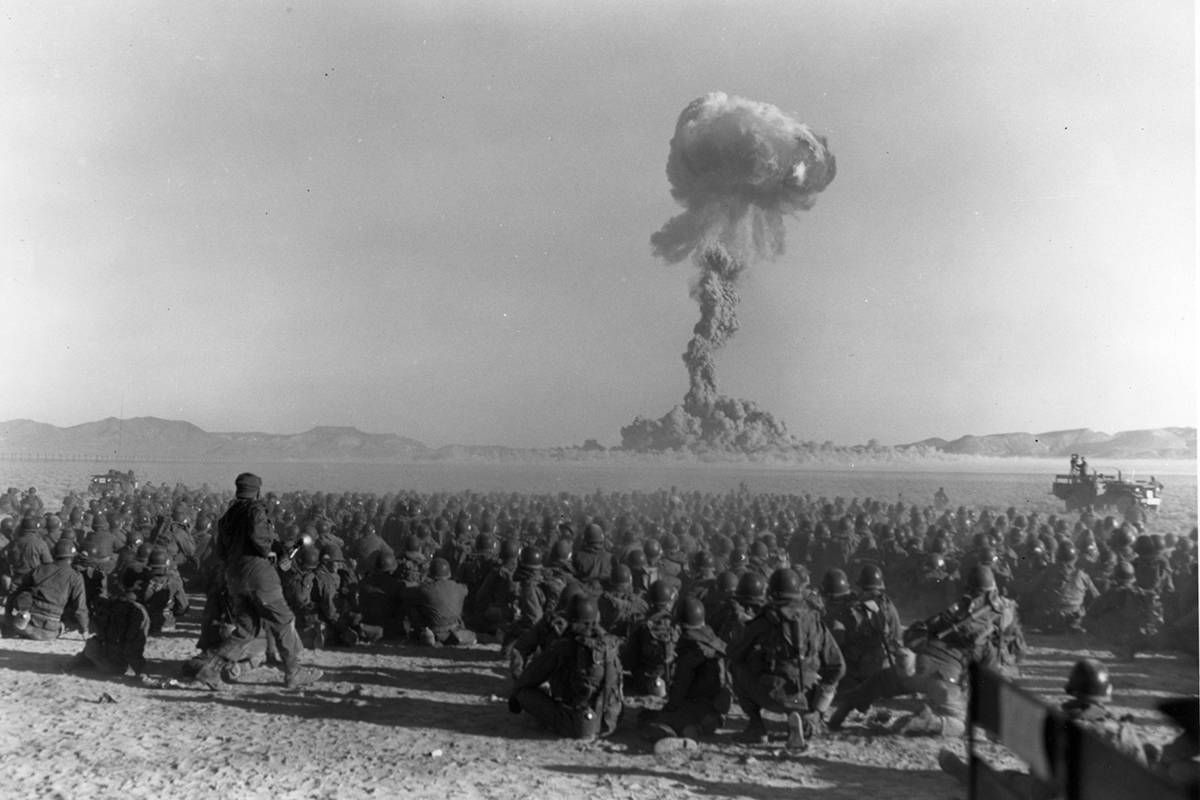House spending bill would ban nuclear weapons testing
WASHINGTON — A House spending bill for the Department of Energy includes legislative language tucked into the draft by Rep. Dina Titus that would prevent the Trump administration from resuming nuclear weapons testing in Nevada, officials said Monday.
Titus, D-Nev., filed a bill last month, with companion legislation introduced by Sen. Ed Markey, D-Mass., that would prevent a resumption of nuclear weapons testing at the Nevada National Security Site north of Las Vegas.
The House spending bill also does not include spending to restart the licensing procedure for the Yucca Mountain nuclear waste repository. Trump backed off his proposals to restart the process to build Yucca Mountain after three years of pushing for the project.
Titus said she heard about the spending bill draft on Monday, and was “thrilled” to see her language preventing nuclear testing and no funding for Yucca Mountain.
“Let’s keep it that way,” Titus said. “This is outstanding news for Nevada.”
Another bill that aims to prevent the Trump administration from detonating a nuclear weapons test was filed in the Senate by Sen. Catherine Cortez Masto and Sen. Jacky Rosen, both Nevada Democrats.
The Senate is still drafting its spending legislation for fiscal year 2021, which begins Oct. 1.
Titus and Markey filed the bills last month to prevent nuclear testing in Nevada.
The bills were filed after a report in The Washington Post cited a senior Trump administration official and former officials who said a discussion of resumption of tests had occurred.
The discussions were largely seen as an attempt to leverage Russia to agree to more restrictive measures when the Strategic Arms Reduction Treaty expires next year.
A foreign envoy with the State Department has since said there are no plans to resume tests. The last underground test last occurred in 1992 at the Nevada National Security Site, a facility larger than the state of Rhode Island.
Titus, a member of the House Foreign Affairs Committee, said the report of discussions within the administration spurred her to file her bill, noting that when reports of talks on testing begin, “you don’t want to mess around.”
Rep. Steven Horsford, whose congressional district includes the testing site, co-sponsored the Titus bill citing safety concerns and the lack of need to resume testing the nuclear weapons stockpile.
The secretaries of Defense and Energy, by law, must certify every year that the weapons stockpile is effective and secure. The stockpile is overseen by the National Nuclear Security Administration, which is under the Energy Department.
“NNSA continues to observe the 1992 nuclear test moratorium,” said Ana Gamonal de Navarro, an agency spokeswoman, last month.
“Since then, the United States has certified the deployed nuclear stockpile annually without nuclear explosive testing, leveraging advances in experimental science, modeling, and simulation applied to nuclear weapons under Science-Based Stockpile Stewardship, and has found no issues that require us to resume underground testing,” she said.
A presidential policy directive in 1993, however, requires the nuclear security administration to maintain readiness to conduct an underground nuclear test within 24 to 36 months, if required, to ensure the safety and effectiveness of the nuclear stockpile, Navarro said.
If there is a resumption of nuclear testing, it would occur at the Nevada site, Titus said, because it is the only U.S. facility equipped to conduct the tests.
In the Senate, Markey’s bill would prohibit a resumption of testing.
Sen. Tom Cotton, R-Ark., inserted in the defense bill a provision that would allow $10 million to prepare for resumption of nuclear testing.
The $10 million authorization is not included in the House version of the defense bill.
Contact Gary Martin at gmartin @reviewjournal.com or 202-662-7390. Follow @garymartindc on Twitter.























